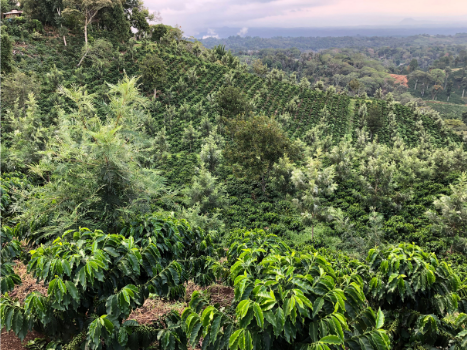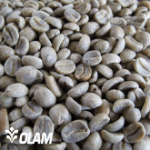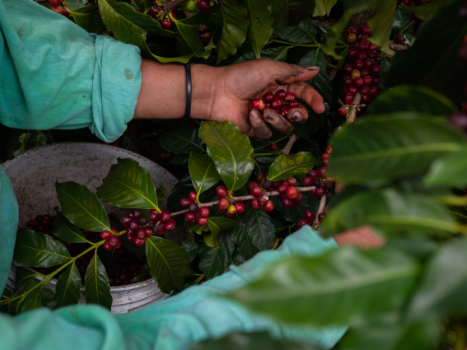Mexico Organic - San Cristobal Tzotzil Microlot
| Bag Weight | 69 KG BAG |
|---|---|
| Harvest Season | 2023/24 |
| Status | Spot |
| Lot Number | P612528-2 |
About This Coffee


History of Coffee in Mexico
With seeds from the Caribbean, cultivation began in Veracruz, where custom house records indicate a few hundred bags of coffee were exported as early as 1802. But these exports were apparently anomalous because after 1805 coffee would not be exported again for twenty years, after the war of independence. Production did increase over this period, presumably for domestic trade and consumption. In 1817, a planter named Don Juan Antonio Gomez started “intensive cultivation” further south, where coffee thrived at high altitudes. By 1826 there were half a million trees in Cordoba and Mexican coffee was being exported. In 1828, seeds—or possibly plants—from Arabia (Yemen) were planted in Uruapan, near the Pacific coast west of Mexico City, by Jose Mariano Michelena. Trees were brought from Guatemala to be planted in the southern state of Chiapas in 1847, and Oaxaca would become the third largest producer of Mexican coffee by 1889.
Growing Coffee in Mexico
Mexican coffee grows in 15 states throughout the southern half of the country but over 90% comes from four states: Veracruz, Oaxaca, Chiapas, and Puebla. Specialty coffee comes from the highlands of Veracruz on the gulf coast, the mountains of Oaxaca and Chiapas at the southern tip of Mexico. In Veracruz coffee grows from 1,100-1,660 m.a.s.l. In Chiapas coffee grows from 1,300-1,700 m.a.s.l. In Oaxaca coffee grows from 900-1,650 m.a.s.l. Coffee is grown by more than half a million farmers, 95% of these being smallholders cultivating less than three hectares and 85% of Mexico’s coffee farmers are indigenous Mexicans. Most Mexican coffee is grown under shade and Mexico is one of the world’s largest producers of certified organic coffee and Fair Trade coffee. Most Mexican coffee is Bourbon, Catura, Maragogype, or Mundo Novo, though other varieties can be found. Mexico grows almost no Robusta.


- Region San Cristóbal de las Casas, Chiapas
- Farm Name Various smallholders
- Producer Type Small Holder Farmers
- Processing Washed
- Processing Description Fermented 12-18 hours, sun-dried on patios
- Bag Type Grain Pro / Ecotact
- Plant Species Arabica
- Variety Caturra, Costa Rica, Typica, Marsellesa
- Min Growing Altitude 1100m
- Max Growing Altitude 1350m
- On Sale No
- Top Lot Yes
- Status Spot
- Certifications Organic Certified NOP
- Coffee Grade MEX CA WA SHG
- CTRM Contract Number P612528-2
- Country of Origin Mexico
- Warehouse The Annex





